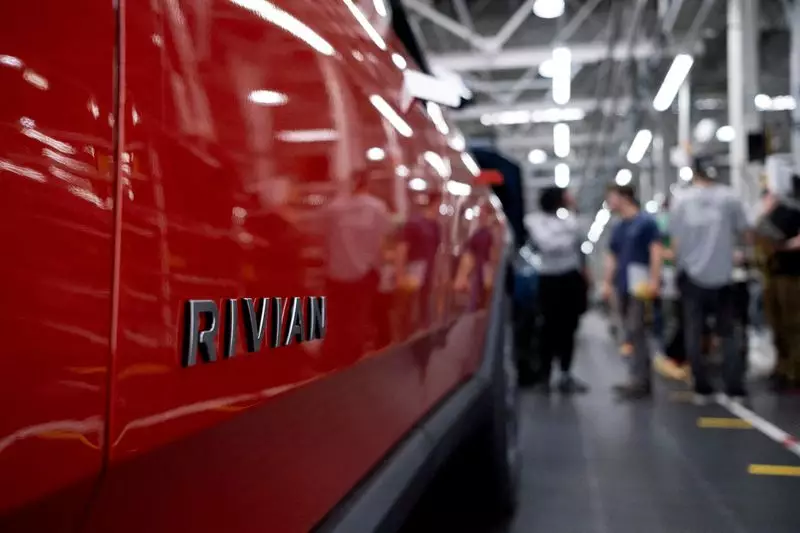In an automotive landscape that is rapidly evolving, the collaboration between Rivian, an innovative U.S. electric vehicle manufacturer, and German giant Volkswagen signifies a pivotal moment for the industry. Announced last year, this partnership represents a substantial $5.8 billion investment by Volkswagen into a joint venture aimed at reinventing electric vehicle architecture and software. This endeavor positions both companies at the forefront of technology development, particularly in the realm of electric pick-up trucks and SUVs, and opens the doors for extensive collaboration with other major automakers.
The Implications of Software and Architecture Integration
The joint venture emphasizes Rivian’s cutting-edge approach to vehicle architecture, which necessitates fewer electronic control units and less wiring. This innovative design not only decreases the weight of the vehicles but also streamlines the manufacturing process, representing a significant leap forward for the electric vehicle segment. Rivian’s software technology is designed to allow for over-the-air updates, allowing vehicles to evolve over time much like smartphones do—a feature that traditional manufacturers are still striving to master. This technological proficiency has made Rivian an attractive partner for many original equipment manufacturers (OEMs) eager to enhance their own offerings.
Rivian’s Chief Software Officer, Wassym Bensaid, acknowledged the influx of interest from various automakers looking to collaborate with the joint venture. Although he refrained from naming specific companies, the fact that Rivian is fielding inquiries from multiple OEMs speaks volumes about the level of demand for their innovative software and electrical architecture. This interest underlines the urgency for traditional auto manufacturers to transition into the software-defined vehicle era, a domain in which Rivian and Volkswagen are currently leading the way.
This joint venture offers strategic advantages that cannot be overstated. For Rivian, the partnership provides leverage in negotiating better supplier agreements and achieving cost reductions, which are crucial given the current slowdown in electric vehicle demand. On the flip side, Volkswagen stands to gain immediate access to technology it has historically struggled to produce on its own. As outlined by analysts from Canaccord Genuity, this joint venture is likely to become a major platform for electric vehicles in the Western market, standing alongside the dominance of Tesla.
Future Prospects and Collaboration Pathways
Looking ahead, Rivian’s priority through 2027 will be the launch of its smaller, more accessible SUV known as the R2. Alongside this, there is a concerted effort to embed this innovative technology across various brands under the Volkswagen umbrella. The partnership is thus not merely about co-development, but also about cultivating a wider ecosystem of collaboration that could reshape the automotive market. As other OEMs seek technological strengths to remain competitive, this joint venture positions itself as a crucial ally for those eager to advance in the electric vehicular field.
The Rivian-Volkswagen partnership marks a significant turning point in the automotive industry. As electric mobility solutions advance, their collaboration represents a blend of innovation, strategic foresight, and a compelling answer to the market’s evolving demands. Through this union, the future of electric vehicles is poised for exciting developments, driven by technology and collaboration.

